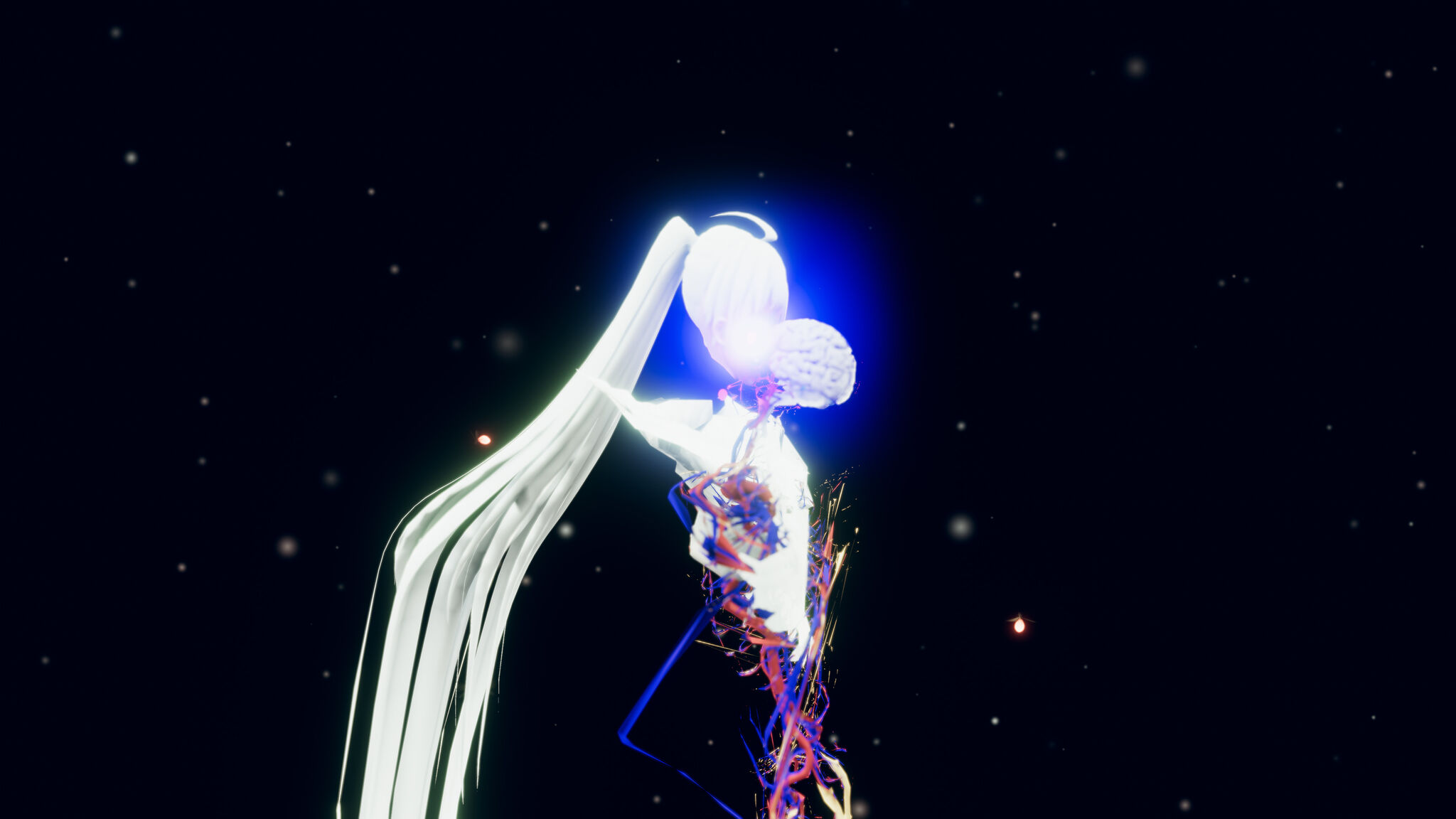Rachel Rossin: The Maw Of
2022
Rachel Rossin: The Maw Of
Rachel Rossin’s The Maw Of is a transmedia story—a narrative unfolding across multiple platforms and formats—that reflects on the ways in which our bodies and minds are increasingly merging with and altered by technology. Central to the animation is a ghostly female figure, rendered in the style of Japanese manga, who wanders through a landscape of layered interfaces, symbols, and codes associated with technological and organic systems. Elements of content from whitney.org are combined with a graph of the nervous system and Web console exposing data operations, and parental guidance alerts give way to infrared imagery used for target acquisition in military operations. Viewers can use the on-screen QR code to launch the augmented reality (AR) component of the work and experience an additional layer of the narrative on their mobile devices. Synched with the browser-based animation, the AR layer features additional textual commentary and transports the central anime figure out of the browser window onto the viewer’s mobile device.
In The Maw Of, Rachel Rossin takes current research into brain-computer interfaces as a starting point to explore the historical development of the relationship between bodies and machines. The artist highlights how technology has evolved from its function as an extension of the body, enhancing its abilities, to more profound and invasive levels. Devices from smartphones to virtual reality headsets already mediate our personal and social lives, and research labs increasingly test the merging of hardware and living organisms. Rossin makes these developments palpable by weaving together visuals that capture an array of technological platforms in an experience mediated by screens, blurring the boundaries between digital and physical.
Viewers can use the QR code appearing in the browser to launch the augmented reality component of the work on their mobile device.
The Web component of The Maw Of is co-commissioned by the Whitney Museum of American Art and KW Institute for Contemporary Art, Berlin. The Maw Of was shown as a site-specific installation at Tieranatomisches Theater, Berlin, from September 15-18, 2022.
Rachel Rossin (b. 1987) is a painter and programmer whose multi-disciplinary practice has established her as a pioneer in the field of virtual reality. Her work blends painting, sculpture, new media, gaming, and video to create digital landscapes that focus on entropy, embodiment, the ubiquity of technology and its effect on our psychology. Rachel Rossin's selected solo exhibitions include Stalking The Trace, Zabludowicz Collection, London, 2019; Greasy Light, 14a, Hamburg, 2019; Tennis Elbow, The Journal Gallery, New York, 2019; Peak Performance, Signal Gallery, New York, 2017; My Little Green Leaf, Contemporary Art Centre, Riga, 2016; and Lossy, Zieher Smith & Horton, New York, 2015. Selected group exhibitions include Chaos and Awe: Painting for the 21st Century, the Frist Center for the Visual Arts, Nashville, 2018; After Us, K11 Art Museum, Shanghai, 2017; ARS17, Kiasma Museum, Helsinki, 2017; and First Look, co-presented by Rhizome, The New Museum, New York, 2017. Rossin received a Fellowship in Virtual Reality Research and Development from the New Museum’s NEW INC in 2015.
artport
View more on artport, the Whitney Museum's portal to Internet and new media art.

